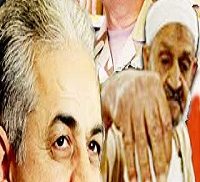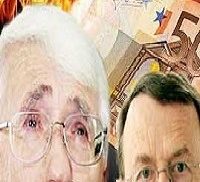This dossier stems from the debate sparked by Elizabeth Suzanne Kassab’s article—which opens this collection—on the transformation of the Arab intellectual scene after 2011. Her notion of a “new contemporary” in Arab thought prompted a series of contributions that do not aim to offer solutions, but rather to raise new questions, probe unresolved issues, and put forward critical perspectives. Bringing together Kassab’s essay and two related pieces, the dossier explores how Arab thought is redefining itself in light of the uprisings, the failures of political transitions, and the moral and intellectual rupture marked by Gaza.
Dossiers
- Democracy currently enjoys almost unanimous consensus and is considered the only scrupulously legitimate political system. This consensus however entails a hidden danger since it presupposes that there is only one genuine form of democracy – allegedly the one developed by Western civilization. Is that true? Or is it possible to acknowledge a plurality of “cultures of democracy”, whose roots grow within diverse civilization and modernization processes?
- Reset-DoC is dedicating its new issue to Tunisia’s exceptional democratic experience within a regional scenario still broadly characterised by instability, violence and new authoritarianisms, with new articles closely examining Tunisia’s post-revolutionary evolution in its media, society and politics. As Jonathan Laurence from Boston College explains in his introductory analysis, today we can say that, although threatened by polarization and radicalisms, Tunisia’s transition has been a success. This is above all thanks to a search for dialogue and acceptance of democratic compromise by the key political players involved, who have understood that concessions are necessary in order to hold together the republican front of Tunisians who swear by the rule of law, while keeping at bay the twin national demons of militant Islamism and overzealous anti-Islamism.
- After the tragic attack in Paris that killed twelve people and injured many others in the Charlie Hebdo offices in Paris, Reset-Dialogues is offering its readers op-eds by our authors followed by a selection of articles, interviews and videos published on this website in recent years and months. Ranging from 9/11 to the Danish cartoons affair, from the reactions inflamed by the offensive “Innocence of Muslims” film to very different events such as the Utoya killings and the Boko Haram kidnappings, these articles and their authors tackle fundamental questions and issues raised once again by a violent incident that troubles and questions democracies and liberal thought at the heart of their commitment to tolerance, freedom of speech and openness.
- Like other classical world traditions and civilizations that seek renewal for survival, continuity and contribution to world affairs, the Islamic one is convened and questioned, maybe more than others and more than ever before, seeing its geographical and intellectual positions between the so-called East and West, an archaic dichotomy that disrupts politics and stirs philosophy at the same time. The ongoing dire socio-political chaos in the Arab-Islamic world questions the intellectual tradition of this part of the world, to see where it stands, and what contributions it offers to overcome the turmoil. Reset-DoC is pleased to present three reflections on Islamic Philosophy by Mohammed Hashas (PhD), as part of an ongoing conversation with a civilization that was, and a worldview that is still vibrant and confident that it can still contribute to world intellect and local politics.
- Ever since the dawn of Enlightenment, toleration has been considered one of the most solid bastions of social peace in liberal and pluralist civilization. Acknowledging and protecting freedom of religion, ideas and speech, the modern rule of law can be considered as a political-institutional as well as juridical fulfillment of what previously was only a hoped-for virtue: toleration. What does tolerating those who are different, those who think or act differently, really mean? Is toleration a form of resignation and indifference regards to the mistakes of others? Or is it rather a synonym for respect for and interest in diversity? Who is called upon to be tolerant? Individuals or institutions?
- On April 15, about 276 girls were kidnapped from a school in the town of Chibok, in the Nigerian state of Borno. 60 more were kidnapped on June 23. Responsibility for the kidnappings was claimed by Boko Haram, an Islamic jihadist group that has been spreading terror for years in northeastern Nigeria, opposing what it calls the “Westernization” of the country. Over the past years, Boko Haram has attacked schools and killed thousands of civilians, including many students. The kidnapping of the girls has spurred outrage throughout the media and around the globe, including the Muslim world. Here are some examples.
- On May 26th, 27th and 28th Egyptians have voted to elect a successor to Mohamed Morsi, the Muslim Brotherhood’s president elected in 2012 and deposed by the army in July 2013. There are only two candidates; the now well-known general Abdel Fattah Al Sisi, and Hamdeen Sabahi, leader of the progressive Egyptian Popular Current, a pro-Nasser activist who opposed Sadat and Mubarak, who had him imprisoned 17 times. In 2012, with 21.5 per cent of the votes, Sabahi came third behind Morsi and Ahmed Shafiq. He did not hesitate to criticise Morsi’s authoritarian shift, describing him as “a new Mubarak.” He has also expressed his disapproval of abuses of power by the transition government imposed by the army. Today, with the slogan “one of us” and a ‘left-wing’ election campaign, he is supported by important personalities in the world of culture such as Alaa Al Aswany and Khaled Youssef. The secular and ‘socialist’ Sabahi aims to obtain the votes of working class citizens and the young revolutionaries. However, few believe his liberal appeal has any chance at all of overcoming the electoral machine fielded by former general Al Sisi. Sabahi, however, is not giving up. He explains why in Azzurra Meringolo’s interview for Resetdoc.
- With an eye on the upcoming European elections, Resetdoc reopens the debate on the European Union and its future with an essay by Jürgen Habermas, written a year ago when sociologist Wolfgang Streeck’s book Gekaufte Zeit (Buying Time) was published. Habermas’ essay marks the beginning of a true Europa-Streit, a controversy on Europe, in which the German philosopher accuses the European Left of having never moved beyond nostalgic positions and of not being able to firmly addressing the Right and the Centre’s populist trends. The essay is introduced by Luca Corchia, who summarizes the controversy between the two authors contextualizing it within the debate on Europe, which, although still defective in the large arenas of state and party politics, is instead spreading in magazines, newspapers and books throughout the continent.
- Blasphemy, an insult addressed at God, a religion or its symbols, is once again an issue in many countries, even where it appeared to have been resolved. Why and in what forms? From Pakistan to the United States, from Europe to Jewish and Christian jurisprudence, the problems raised by blasphemy in the modern world are still many, and they do not only concern religion, but also politics, society and co-existence.
- Global mobility, migrations and a growing cultural and religious diversity are shaping the identity of 21st century Europe. But many obstacles are still in place before European societies will become genuinely pluralist societies: in an age of economic turbulences, politics of fear, spreading populisms and new racisms, political imagination and democratic forces still need to be mobilized in order to break out of the trap of reciprocal rejection or misrecognition and the spiraling of negative feelings. Part of this enterprise can focus on understanding different facets of the trap itself, unraveling the nature of reactive and hostile identities, the political-mediatic creation of ‘exceptionalisms’ and the construction of so-called ‘communities of fear’ through the stigmatization and securitization of migrations.











